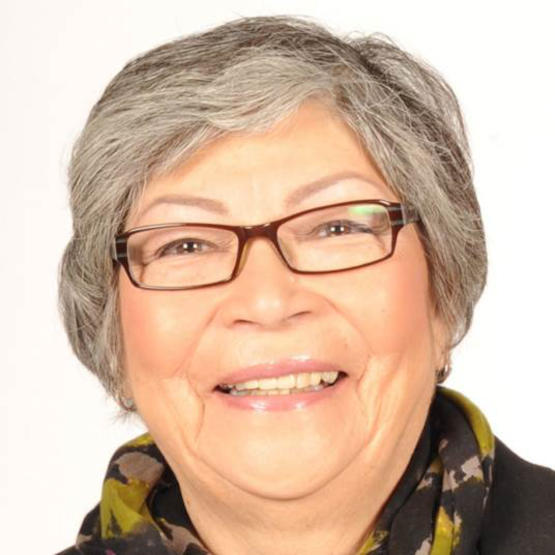
The team was led by nôcikwesiw (Elder) Dr. Leona Makokis, a ceremony and language holder from the Kehewin Cree Nation.
Courtesy Ralph Bodor
March 21, 2022

The team was led by nôcikwesiw (Elder) Dr. Leona Makokis, a ceremony and language holder from the Kehewin Cree Nation.
Courtesy Ralph Bodor
A wisdom-seeking (research) team from the University of Calgary Faculty of Social Work have made academic history by submitting a Social Sciences and Humanities Research Council (SSHRC) Insight Development Grant (IDG) written entirely in nêhiyawewin (Cree language).
The Insight Development Grant proposal, entitled isihcikewin e apatak ka natahîwe: atoskatamik tanisi kesi pîtos kiskinohamake, is the first of its kind to be submitted to the Social Sciences and Humanities Research Council (SSHRC). SSHRC is the federal research funding agency that promotes and supports research and research training in the Humanities and Social Sciences.
The proposal has two goals: to use nêhiyaw (Cree) based, Indigenous wisdom-seeking processes to explore the connections between ceremony and healing through the teachings of nêhiyaw (Cree) Elders and knowledge-keepers; and to honour nêhiyaw language holders and knowledge-keepers by submitting an application entirely in nêhiyawewin.
“We know that language creates reality,” explains Dr. Ralph Bodor, PhD, an associate professor at the University of Calgary Faculty of Social Work’s Edmonton campus. “The nêhiyaw language creates its own reality — an Indigenous reality.”
“Understanding nêhiyaw ceremony and healing can only happen if we understand the language. That wisdom-seeking can only really happen in the language. You can't explore Indigenous ceremony and healing in English.”
The wisdom-seeking team, led by nôcikwesiw (Elder) Dr. Leona Makokis, a ceremony and language holder from the Kehewin Cree Nation and a former president of the University nuhelot’įne thaiyots’į nistameyimâkanak Blue Quills, and with oskapewis (Elder’s spiritual helper) Ralph Bodor and Stephanie Tyler (PhD candidate) and âpihtawikosisân (Metis-nehiyaw woman) Kristina Kopp (PhD student), recently submitted the landmark proposal to SSHRC for the second time.
On the first pass, it was rejected without appeal on the grounds that the “use of the nêhiyaw language makes it unfeasible for SSHRC to ensure that the project receives the same quality of peer review as proposals presented in English or French.”
The previous SSHRC response also went on to state that fluency in official languages is just one criterion. They also felt that difficult to find enough reviewers who knew nêhiyaw that also had experience with major grant programs and expertise in the relevant field of research.
Bodor takes issue with this point saying, “They didn't think there weren’t enough Indigenous scholars in Canada to be able to evaluate an Indigenous proposal? Based on many years of wisdom-seeking in the nêhiyaw community, we know many Indigenous scholars who could provide a review based in the teachings and the language.”
Makokis, though disappointed with the first response, says she’s chosen to look at the experience as a net positive.
“I think this is a learning journey on their part,” she says. “I think we've pushed them in terms of, ‘Wow, I guess there could be some Cree, nêhiyaw proposals coming our way.’ They had never, ever been challenged. We just have to keep knocking on those doors.”
“TRC and UNDRIP and all of that — what does it really mean?” she continues. “I think it comes from a Western perspective on how they see they can do things, but we come from our own perspective and are telling them, ‘This is an example of how you can support us.’”
Tyler concurs: “If you're truly wanting to support Indigenous wisdom-seeking, strengthening Indigenous resurgence, and Indigenous scholarship, then you really need to recognize that there's another universe that has processes parallel to the western universe.”
Kopp commented on how impactful and valuable the writing experience was for her, as a nêhiyaw-Métis Cree language learner, to be mentored by her language teacher, nôcikwesiw Leona Makokis.
The wisdom-seeking team expressed gratitude towards the University of Calgary for how supportive they have been of the submission, both in approving the application and a previous University Research Grants Committee (URGC) grant that supported its initial creation.